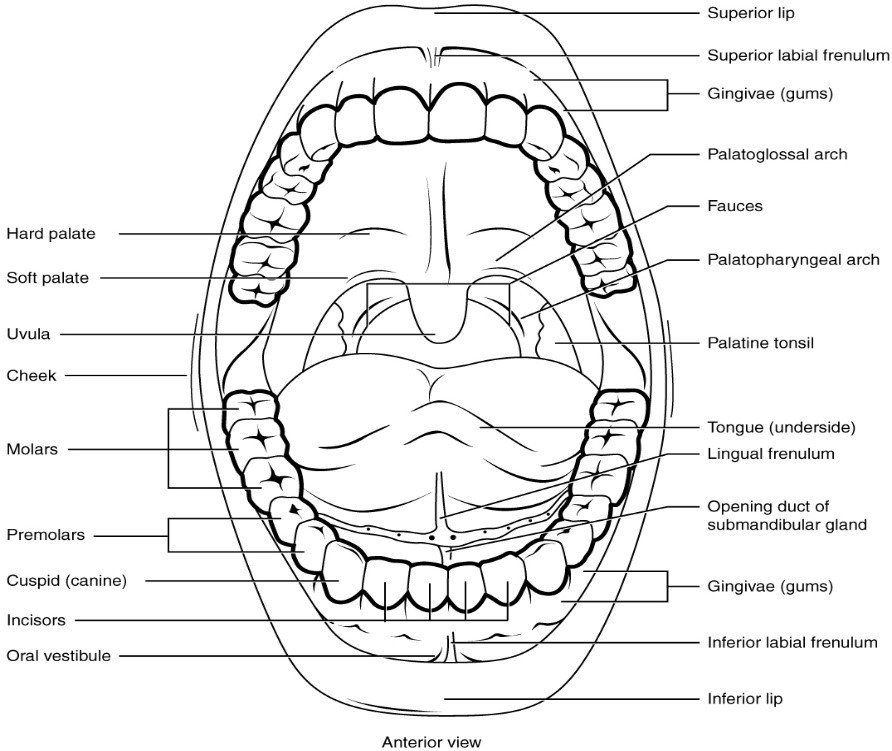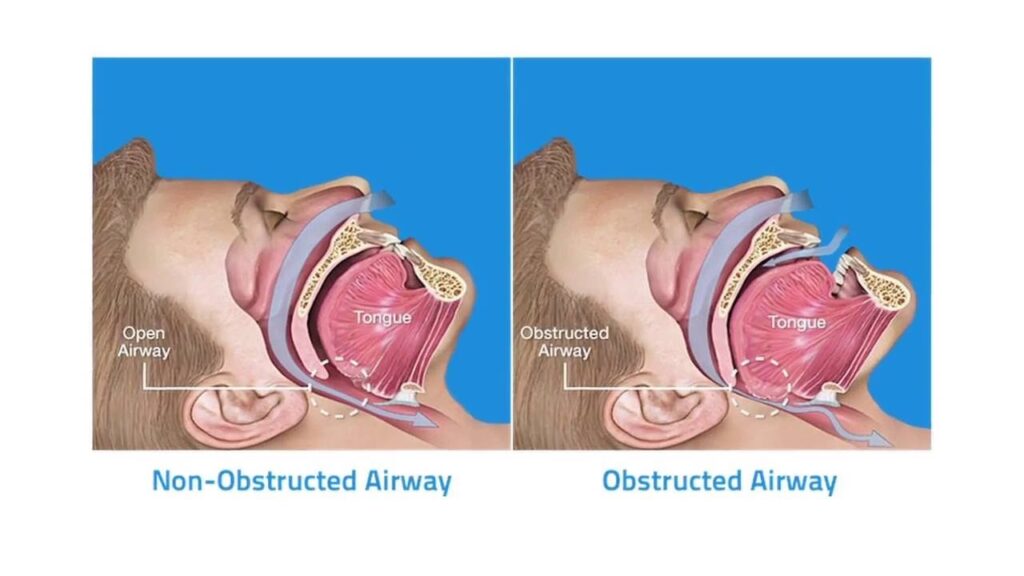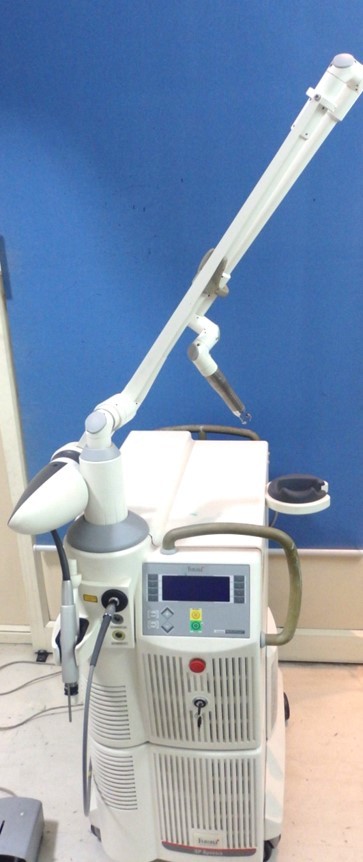Snoring might not seem like a very problematic condition, but it can in fact be very troubling, both for the sufferer and also for his/her partner. Till date, there was no simple solution for this common condition, but a recent advancement in laser snoring treatment technology has given us a better alternative.
What is Snoring?
Snoring is the loud sound produced during sleep, caused by the vibration of soft tissues at the back of your throat. Snoring is a very common condition, affecting a large number of individuals. Studies show that 45% of men and 30% of women snore on a regular basis, and almost everyone snores occasionally. It is often more troubling to the bed partner than the snorer himself and even be a cause for marital stress.
Causes of Snoring
The most common cause of snoring in adults is narrowed space for breathing at the back of the throat, while sleeping. This may be due to a bulky tongue, elongated uvula (a fleshy hanging structure at the back of the throat), or a lax soft palate. It may also be due to anatomical obstruction elsewhere like the nose (deviated nasal septum), voice box etc. In children, the most common cause of snoring and mouth breathing is adeno-tonsillar hypertrophy.

What worsens your snoring?
Apart from the above physical issues, several factors can worsen snoring. These include alcohol consumption, smoking, obesity, use of sedative drugs.
Is snoring a serious condition?
Snoring can be harmless when it occurs by itself. In certain individuals, it occurs along with obesity, high BP, and Diabetes. This syndrome is called obstructive sleep apnea. They also have other debilitating symptoms like;
- disturbed sleep,
- waking up during sleep due to gasping/choking,
- excessive day time sleepiness,
- morning headache,
- fatigability,
- irritability,
- decreased concentration and memory loss,
- depression and mood changes,
- decreased sexual function,
- sweating and enuresis at night,
- gastric problems etc.

What are the consequences of Obstructive sleep apnea and why should you get yourself treated?
A number of negative health effects have been attributed to untreated OSA, mainly increase in cardiovascular disease which can result in hypertension, coronary heart disease, congestive heart failure, arrhythmias, pulmonary hypertension, stroke and sudden death. Neuro-cognitive difficulties which can result in decreased concentration, memory loss, depression. Untreated OSA is a risk factor for diabetes and metabolic syndrome – obesity, insulin resistance, hypertension and dyslipidaemia.
Snoring Treatment: Is snoring treatable? How can I treat my snoring?
Many patients are not aware that snoring can be treated. Start by getting a detailed evaluation by an ENT (ear, nose and throat) surgeon. Find out the exact cause of snoring and the level of obstruction (nose, throat etc).
Snoring treatment and OSA is a comprehensive approach involving efforts by both the patient and the doctor. A number of surgical and non-surgical options have evolved over the years.
What are the traditional non-surgical options available to treat my snoring?
CPAP machine (Continuous positive airway pressure). This device is worn like a mask at night, and provides positive pressure to the air continuously and prevents the collapse of the tissues on the back of your throat, thus reducing the sound of snoring. However, this device is uncomfortable to wear throughout the night. Hence, the patient compliance is low. The cost may range from Rs. 5000-25,000.
Oral appliances that open the airway and certain drugs have been tried, with less success. For children with co-existent nasal problems or adeno-tonsillar hypertrophy, use of steroid nasal sprays as an adjunct has proved effective .
What are the surgical options to treat my snoring?
Most common surgical procedure is UPPP – Uvulo-palato-pharyngoplasty, which involves removal of excessive tissue at the back of your throat to improve the airway. The disadvantages are that it requires general anaesthesia, admission to the hospital for a few days and pain.
Other options include nasal surgeries if the level of obstruction is in the nose, adeno-tonsillectomy and palatal surgeries.
What is laser Snoring Treatment?
Use of Er:YAG laser while Laser Snoring treatment to tighten the tissues like soft palate, uvula, tonsillar fossae, base of the tongue; present at the back of the throat. Laser is a special type of light, which is absorbed by the water in the tissues, to generate heat. The heat leads to production of fibres called collagen, which then tightens the tissue .No tissue is destroyed in the process, as it is a non- ablative process. The tightened tissues then lead to less vibration and movement, during sleep and this reduces snoring.

Why is this procedure better?
The advantages of this procedure are many.
- The procedure is comfortable, short and lasts 20-30 minutes only.
- It does not require general anaesthesia, and very rarely may require only local anaesthetic sprays.
- Does not cause pain and does not have any post-operative side effects.
- It does not require hospital admission – the patient goes home an hour after the procedure.
The patient is required to come for 3 sessions on day 0, 15 and 45. Later, maintenance sessions may be needed once in 4-6 months.
Who is eligible for laser treatment of snoring?
Laser will benefit almost every individual with snoring to a certain extent. However, concomitant obesity, diabetes and hypertension have to be diagnosed and treated. Cases with severe obstructive sleep apnea may require invasive surgical procedures.
Is laser expensive?
Laser treatments are not expensive; one session costs about Rs. 5000/-
What are the advantages of having the treatment at the Venkat Center?
Our ENT Surgeon is Dr. Deeksha Rao Venkataram, who has been training in the use of this laser. We use Fotona Erbium YAG laser which is an FDA approved device from Slovenia. Venkat center offers comprehensive approach as it has a team of an ENT surgeon, a Plastic surgeon (for improvement of shape of nose which is often needed for patients of snoring) and facilities for liposuction in overtly obese individuals with snoring. The center has the experience of using laser machines for over 15 years.
To summarise, the treatment of snoring and obstructive sleep apnea is comprehensive. Along with laser treatment, the patient has to make a conscious effort to lose weight. Treatment of other associated problems like hypertension and diabetes is also important.



